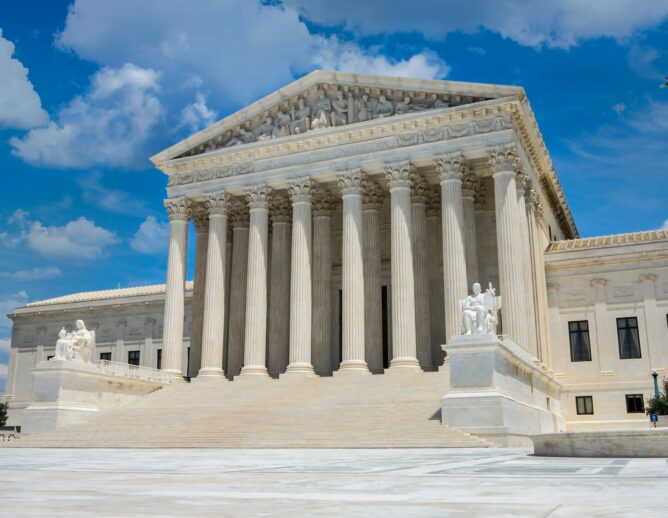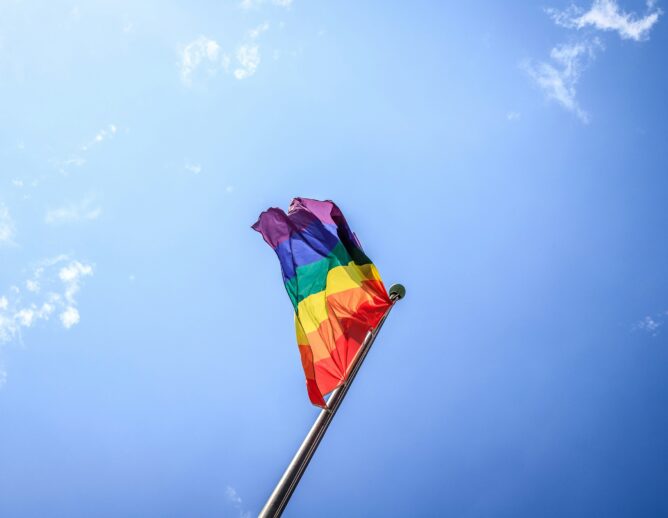This post originally appeared on the HealthLawProf Blog. The original blog can be found here.
 The values of public health, personal choice, and parental rights have collided in an intense debate over mandatory vaccinations. Senator Rand Paul argued that parents have the right to choose: “The state doesn’t own your children. Parents own the children.” The overwhelming weight of science supports the safety and effectiveness of immunizations. Parental choice also does not extend to decisions that impose risks on the community. While libertarian values stress autonomy to make self-regarding decisions, it does not give license to place harm others. But if an individual’s right ends at the point that its exercise jeopardizes the safety of others, then why do states allow parents to opt out of vaccinations? The reason boils down to overbroad exemptions granted by many states. The Constitution doesn’t require states to grant exemptions, but lobbying by a minority of parents has resulted in a tragedy of the commons.
The values of public health, personal choice, and parental rights have collided in an intense debate over mandatory vaccinations. Senator Rand Paul argued that parents have the right to choose: “The state doesn’t own your children. Parents own the children.” The overwhelming weight of science supports the safety and effectiveness of immunizations. Parental choice also does not extend to decisions that impose risks on the community. While libertarian values stress autonomy to make self-regarding decisions, it does not give license to place harm others. But if an individual’s right ends at the point that its exercise jeopardizes the safety of others, then why do states allow parents to opt out of vaccinations? The reason boils down to overbroad exemptions granted by many states. The Constitution doesn’t require states to grant exemptions, but lobbying by a minority of parents has resulted in a tragedy of the commons.
First some background. Vaccine preventable diseases are on the rise—diphtheria, pertussis, tetanus, measles, mumps, and rubella. Parents are delaying or selectively administering vital immunizations for their children, often opting out entirely. The CDC declared measles eliminated in 2000. But in 2014, the United States recorded a record number of cases—644 cases from 27 states, more than three-fold higher than any previous year. In January, a measles outbreak started at Disneyland, diffusing to 14 states, re-igniting the immunization debates.
Vaccination Exemptions: Religious and Conscientious Objections
Every state requires vaccinations as a condition of school entry, but 48 states grant religious exemptions (Mississippi and West Virginia do not). The problem is that states have broadly varying requirements regarding the sincerity, strength, and religious basis of parental objections. Nineteen states also grant exemptions for parents who profess philosophical convictions because of “personal,” “moral,” or “other” beliefs. Some states require nothing more than a signature on a pre-printed form, while others have strict standards. Arkansas, for example, requires a notarized statement, an educational requirement, and health department approval.
In practice, exemptions constitute only a small percentage of school entrants, but the number of exemptions is growing, with decreasing vaccination rates and increasing numbers of vaccine-preventable disease. The incidence of pertussis, for example, is more than twice as high in states that allow personal objections; states with easy religious exemptions have pertussis rates 90% higher.
Many argue that if states ended the practice of conscientious objections the problem would be eliminated. But most parents who opt out do so for “religious” reasons, cloaking themselves in the First Amendment. While a tiny fraction of individuals in prominent organized religions (e.g., Christian, Jewish, Muslim) say their religion forbids vaccinations, the vast majority of those practicing the same religion are happy to vaccinate their children. Often there is nothing tangible in the religious scripts that would rule out vaccinations. And most who seek exemptions for vaccines do allow (even demand) medical treatment for their children when they fall ill. So, is the decision to opt out truly a religious belief worthy of First Amendment protection? Or, is each individual really exercising a personal prerogative—a prerogative that poses potential harms to the community. Undoubtedly, some who opt-out do have sincere religious beliefs, but often overly broad exemptions allow individuals to claim religion, or conscience, as a subterfuge for misplaced beliefs about vaccine safety.
The Anti-vaccination Movement
Organized parental groups fight mandatory vaccination and actively lobby for liberal exemptions. The Internet fuels their opposition, with websites and online chat forums hostile to immunization. The hostility is often fueled by misinformation, such as the deep-seated belief that vaccines cause autism. Initially, concerns centered on thimerosal (a mercury preservative), even though a host of scientific organizations found no evidence to support the claim. Today, thimerosal-containing vaccines are eliminated from most childhood vaccines, but autism continues to rise. Some parents believe the measles, mumps, rubella vaccine may be the culprit, again against the weight of science. The ethical question is whether a lay view of vaccine risk unsupported by evidence ought to prevail when the consequence of failure to vaccinate is the spread of dangerous, sometimes lethal, diseases. And, the most vulnerable children are most likely to suffer, such as kids with weak immune systems or infants too young to be vaccinated.
The current measles outbreak originating at Disneyland spurred a backlash against parents at the heart of the anti-vaccine movement, who were blamed for incubating a preventable public health crisis: “Their children have been sent home from school. Their families are barred from birthday parties and neighborhood play dates. Online, people call them negligent and criminal…. Measles anxiety rippled thousands of miles beyond its epicenter.”
Tragedy of the Commons: Immunizing the “Herd”
For any given child, a decision not to vaccinate might make sense. Vaccines, like any medical intervention, are not risk-free, but the risks are all mild or extremely rare. For example, childhood vaccines are linked to minute risks of anaphylaxis associated with an allergy to the egg products used in the vaccine manufacturing process (about one case per 1.5 million doses). If a parent opts out, the child runs no risk of a vaccine’s adverse effects, while gaining the benefits of immunity because others in the community have been vaccinated. Known as “herd immunity,” if enough people in a population are immunized, everyone is protected. But the “tragedy of the commons” is that if enough people opt out, everyone becomes at risk. Thus, parents who opt out are betting that everyone else will be a good citizen. What has happened is that religious and conscientious objectors cluster in distinct neighborhoods, which then fuel outbreaks throughout the community.
The Solution is Plainly Within Sight
The Constitution does not require states to grant either religious or conscientious objections—that is a political decision. All states should allow any individual with a medically documented contraindication to vaccines to opt out. But states should either eliminate religious and conscientious exemptions, or require a rigorous process for claiming the exemption. There are good models of tougher standards, requiring clear evidence of the validity of the religious belief, verified by the state health department. If exemptions were truly rare, as they should be, then herd immunity would operate. Everyone would be safer. That is the solution that is supported by science, public health, and ethics. The current system of generous opt-outs virtually guarantees that infectious disease outbreaks will continue and grow in frequency and severity. And it allows parents to impose risks on their children’s friends and schoolmates without their consent.
Latest
FDA v. Alliance for Hippocratic Medicine: Recapping the Supreme Court’s Oral Argument
Suhasini Ravi Rebecca Reingold



